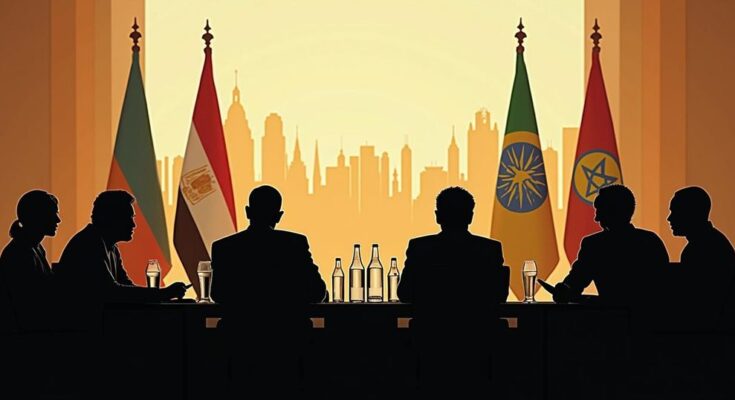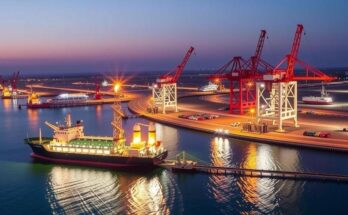At the UNGA 79, Egypt’s Minister of Foreign Affairs Badr Abdelatty condemned Ethiopia for unilateral actions concerning the Grand Ethiopian Renaissance Dam (GERD), emphasizing that Egypt will not tolerate threats to its existence. He highlighted the importance of a binding agreement between Ethiopia, Sudan, and Egypt regarding water rights, as Egypt’s water supply remains critically low.
CAIRO – On September 28, 2024, during the high-level General Debate of the 79th session of the United Nations General Assembly (UNGA 79), Egypt’s Minister of Foreign Affairs, Badr Abdelatty, firmly articulated Egypt’s stance regarding the Grand Ethiopian Renaissance Dam (GERD). He emphasized that Egypt would not overlook existential threats to its nation, insisting on the potential peril the dam poses to the lives of Egyptians and Sudanese alike. Minister Abdelatty asserted, “It is a mistake to think that Egypt will turn a blind eye or tolerate a threat to its existence,” while condemning Ethiopia’s unilateral actions concerning GERD, which he claimed violate international law and prior agreements. In his address, Abdelatty pointed out the lengthy negotiations, extending over a decade, that have failed due to Ethiopia’s ongoing unilateral initiatives which disregard the well-being of millions relying on the Nile. He cited Egypt’s dire dependence on this water source, noting that the country’s per capita water supply is significantly below the internationally recognized threshold for scarcity. The Minister acknowledged Egypt’s pursuit of a binding agreement with Ethiopia and Sudan that would safeguard their water rights but criticized Ethiopia for proceeding with the dam’s operation without consent from its neighbors. President Abdel Fattah El-Sisi has previously reiterated that Egypt’s water rights are a crucial and non-negotiable issue, reflecting the intense international concern surrounding the potential ramifications of Ethiopia’s actions on regional stability. Abdelatty expressed that Ethiopia’s approach to GERD not only challenges mutual cooperation but threatens broader regional stability as well, seeking to affirm the necessity for resolution through diplomatic means.
The Grand Ethiopian Renaissance Dam (GERD) is a significant hydroelectric project on the Blue Nile River in Ethiopia, which has been a source of tension between Ethiopia, Sudan, and Egypt since its inception. Egypt views the dam as a potential threat to its water supply, given its heavy reliance on the Nile River for the majority of its water needs. The ongoing dispute centers around concerns regarding unilateral actions taken by Ethiopia in filling and operating the dam, which Egypt and Sudan warn could adversely affect their water rights. Despite lengthy negotiations, no binding agreement has been reached, leading to heightened tensions in the region.
In summary, Minister Badr Abdelatty’s address at UNGA 79 underscores Egypt’s unwavering commitment to safeguarding its water rights amidst ongoing tensions with Ethiopia regarding the Grand Ethiopian Renaissance Dam. His statements reflect deep concerns about the unilateral actions of Ethiopia that endanger the stability and welfare of millions in the downstream countries. As Egypt continues to navigate this intricate geopolitical challenge, the need for a binding agreement that respects the interests of all parties involved remains critical for regional peace and cooperation.
Original Source: www.egypttoday.com




